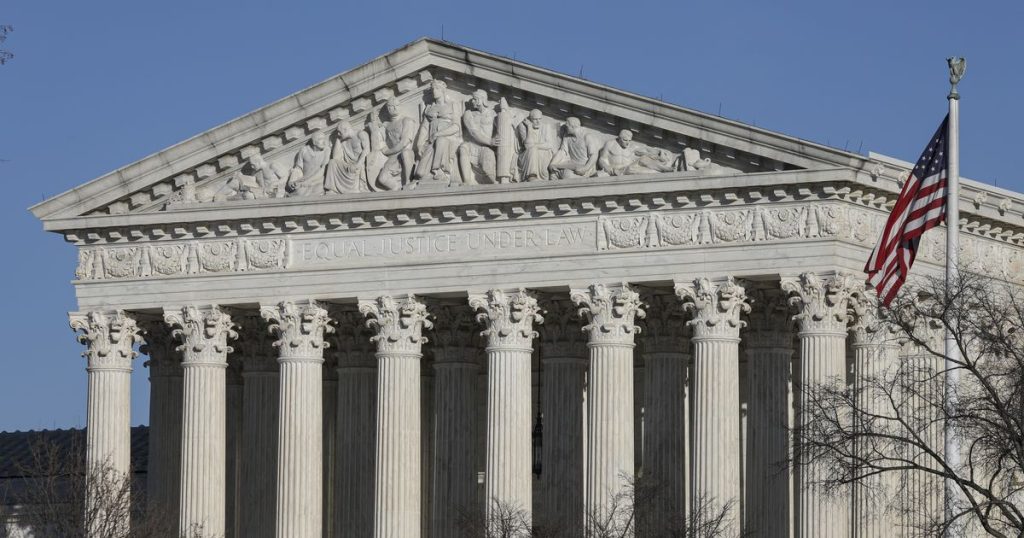The Supreme Court recently allowed Idaho to start enforcing a state law that prohibits transgender youth from receiving gender-affirming care. The case, Poe v. Labrador, questions the constitutionality of Idaho’s ban on gender-affirming treatments for transgender minors. The ban was temporarily blocked last December, but the Supreme Court’s decision on Monday allows the state to enforce the ban for all trans minors in Idaho except for the two anonymous plaintiffs who initially sued the state. The ban prohibits medical providers from administering puberty blockers and hormone replacement therapy to transgender minors, with violations leading to felony charges and up to 10 years in prison.
Advocates, including the ACLU, have raised concerns about the limited nature of the injunction, which only excludes the two plaintiffs from the ban. They worry that this could put the teenagers at risk of revealing their transgender identities whenever they seek medical care. The case is ongoing and could potentially reach the Supreme Court or return to the district court for further litigation. Families in Idaho are now scrambling to find ways to continue providing necessary care for their children, despite the ban on gender-affirming treatments. Since 2019, there has been a rise in anti-LGBTQ laws aimed at limiting the rights of transgender individuals, with Idaho now being the 24th state to adopt such a ban.
While several U.S. district courts have blocked bans on gender-affirming care from taking effect, some appeals courts have allowed them to proceed, raising questions about the bans’ constitutionality. The Idaho attorney general’s request for emergency relief focused on limiting the scope of the injunction rather than addressing the ban’s constitutionality. Some justices, such as Neil Gorsuch and Brett Kavanaugh, have expressed their concerns about the use of universal injunctions and the court’s role in addressing these issues. Justice Kentanji Brown Jackson, in her dissenting opinion, found Idaho’s request for court intervention on the enforcement scope of the ban troubling, emphasizing the importance of a child’s access to gender-affirming care as a serious matter.
The debate among the justices over the court’s authority to block broad enforcement of laws has continued, with little discussion about the constitutionality of the ban itself. The issue of universal injunctions has been raised in cases involving anti-LGBTQ legislation and has become a point of contention among the justices, particularly regarding how such injunctions should be applied in civil rights lawsuits. The court’s decision has immediate implications for trans Idahoans who rely on gender-affirming care, with families now facing uncertainty about how to continue providing necessary treatment. The future of the case remains unclear, as it could potentially be heard by the Supreme Court or go back to the district
the district court for further adjudication.
In conclusion, the Supreme Court’s decision to allow Idaho to enforce its ban on gender-affirming care for transgender youth has sparked debate about the scope of universal injunctions and the court’s role in addressing the constitutionality of such bans. The ongoing case, Poe v. Labrador, is part of a
wider trend of anti-LGBTQ legislation aimed at restricting the rights of transgender individuals. As families in Idaho navigate the challenges of providing necessary care to their children, advocates continue to fight for the rights of transgender youth to access gender-affirming treatments. The outcome of this case could have far-reaching implications for the rights of transgender individuals
across the country.


